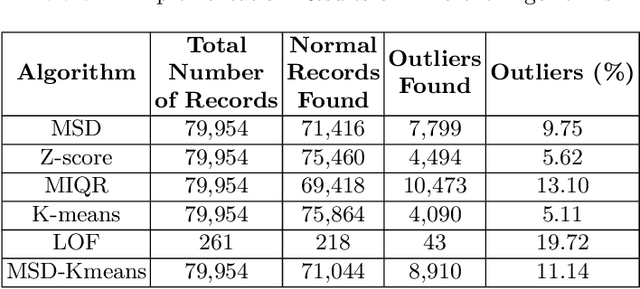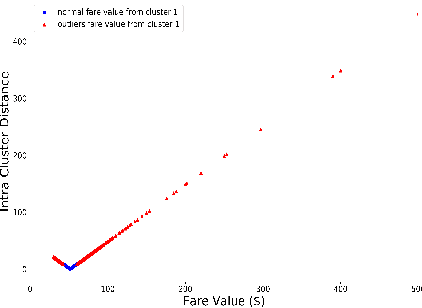MSD-Kmeans: A Novel Algorithm for Efficient Detection of Global and Local Outliers
Paper and Code
Oct 15, 2019



Outlier detection is a technique in data mining that aims to detect unusual or unexpected records in the dataset. Existing outlier detection algorithms have different pros and cons and exhibit different sensitivity to noisy data such as extreme values. In this paper, we propose a novel cluster-based outlier detection algorithm named MSD-Kmeans that combines the statistical method of Mean and Standard Deviation (MSD) and the machine learning clustering algorithm K-means to detect outliers more accurately with the better control of extreme values. There are two phases in this combination method of MSD-Kmeans: (1) applying MSD algorithm to eliminate as many noisy data to minimize the interference on clusters, and (2) applying K-means algorithm to obtain local optimal clusters. We evaluate our algorithm and demonstrate its effectiveness in the context of detecting possible overcharging of taxi fares, as greedy dishonest drivers may attempt to charge high fares by detouring. We compare the performance indicators of MSD-Kmeans with those of other outlier detection algorithms, such as MSD, K-means, Z-score, MIQR and LOF, and prove that the proposed MSD-Kmeans algorithm achieves the highest measure of precision, accuracy, and F-measure. We conclude that MSD-Kmeans can be used for effective and efficient outlier detection on data of varying quality on IoT devices.
 Add to Chrome
Add to Chrome Add to Firefox
Add to Firefox Add to Edge
Add to Edge